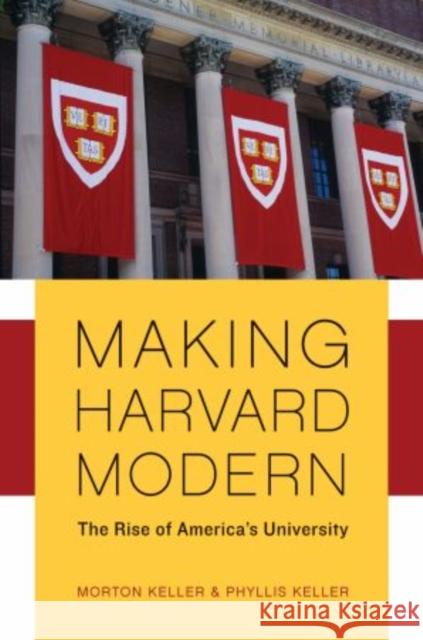Making Harvard Modern: The Rise of America's University. Updated Edition » książka
Making Harvard Modern: The Rise of America's University. Updated Edition
ISBN-13: 9780195325157 / Angielski / Miękka / 2007 / 608 str.
Early twentieth-century Harvard was the country's oldest and richest university, but not necessarily its outstanding one. By the century's end, it was widely regarded as the nation's, and the world's, leading institution of higher education. With verve, humor, and insight, Morton and Phyllis Keller tell the story of that rise: a tale of compelling personalities, notable achievement, and no less notable academic pratfalls. Their book is based on rich and revealing archival materials, interviews, and personal experience.
The Kellers begin in 1933, when James Bryant Conant became Harvard's president and set out to change a Brahmin-dominated university into a meritocratic one, and they shed light on the presidencies of Nathan Marsh Pusey, Derek Bok, and Neil Rudenstine. The Kellers cover such events as the campus turbulence of the 1960s, show how the university gradually opened its doors to growing numbers of foreign students, women, African- and Asian-Americans, and Hispanics, and examine the debates over affirmative action, political correctness, and the ever higher costs of higher education. For the updated paperback edition, the authors feature a new chapter on the controversial presidency of Lawrence Summers, who put Harvard into the national spotlight during his reign, and the abolition of early admissions, which began to change university policies nationwide. The Kellers will draw on archival materials, newspaper articles, and an interview with Summers. The book will appear in time for Class Day in June.
Making Harvard Modern is a candid, richly detailed portrait of America's most prominent university from 1933 to the present: seven decades of dramatic change. This fascinating account, the first comprehensive history of a modern American university, is essential reading for anyone with an interest in the present state and future course of higher education.











